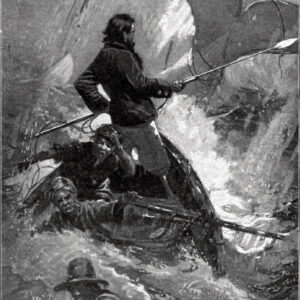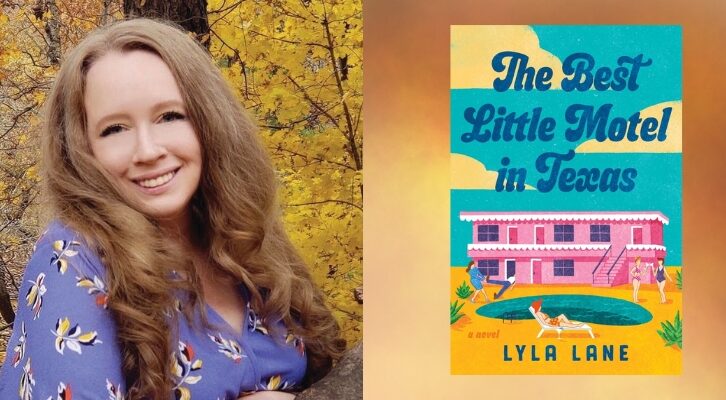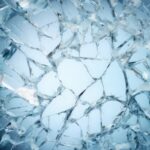
Joanna Kavenna, Champion of the Contemporary Philosophical Novel
Nicole Im in Conversation with the Author of A Field Guide to Reality
Joanna Kavenna is a philosopher dressed down in the sensory details of the novel. Kavenna, who took her last name from the Norwegian name for woman, seems to be reassembling the world from its basic questions—what are we and why are we here?
In her latest, A Field Guide to Reality, protagonist Eliade Jencks is always one scent or thought-carom away from the void. In one moment she notes the smell of laundered handkerchiefs and the sound of clattering plates while pondering questions like “does perception create the world, or is it there before us, preset and perpetual?” A Field Guide to Reality circles these questions through the point of loss. After learning that her friend Professor Solete has died, Eliade embarks on a journey to find his mysterious “Field Guide.” She is pulled into the strange worlds of Solete’s various colleagues, and as her journey progresses, finds it harder and harder to “determine what [is] real and what [is] not.”
Named one of Granta’s Best Young British Novelists in 2013, Kavenna’s debut novel, The Ice Museum, was released in 2005. Her second novel, Inglorious (2007) won the Orange Award for New Writing, and her third, The Birth of Love (2010), was long-listed for the Orange Prize. A Field Guide to Reality is her fifth novel, preceded by the dark comedy, Come to the Edge (2012).
Kavenna is in conversation with John Freeman and Ben Markovits tonight at London’s Free Word Centre.
Nicole Im: Nature plays a big role in your recent story in Freeman’s, “If There Was No Moon,” and in your novel, A Field Guide to Reality. Cold, dark rivers, shadow-casting trees, circling birds, and throughout A Field Guide, a swirling, smudging mist. How do you view the relationship between the physical world and philosophical ideas, and how do they connect in your writing?
Joanna Kavenna: For many years I had this idea about an impossible book, which would supply cogent, succinct answers to all those ambiguous and perplexing questions about the meaning of life and death, i.e a field guide to reality: a sober, helpful, lucid manual for fixing existential angst, like a manual for fixing a car. So that was the idea behind A Field Guide to Reality—this idea of an impossible book.
I’m very interested in philosophical questions about reality and truth and the meaning of things. I don’t think there should be an esoteric elite that gets to think deeply about life, and surrenders its hallowed revelations to the rest of us. I think we all have the right to speculate about what the hell is going on. Because it’s all very weird but it’s actually happening to us—just this once, just for now. Perhaps because of all this, my narrators observe things in quite a detailed and even at times frenetic way—whether they’re in the countryside or in a city or town. To me, also, philosophical thought and the surrounding environment are allied, partly because I walk long distances, whenever possible, to work out my ideas.
NI: Eliade goes on a journey to find Solete’s “Field Guide to Reality.” Have you ever embarked on a similar quest to discover more about a favorite author? A kind of literary pilgrimage?
JK: Yes, I once moved to Oslo and spent a year working in the philosophy department at Oslo University, mostly in order to learn enough Norwegian to read Sult (Hunger) by Knut Hamsun. I was completely obsessed with that book. The grotesque tragedy of Hamsun’s life then led me towards the subject matter of my first book, The Ice Museum, which was about northern Europe, the Arctic and the Second World War. But everything I’ve ever written has derived from an original philosophical or literary obsession, I think…
NI: I notice you often use exclamation points in your writing. It’s not a punctuation I usually see in contemporary literature. What does the exclamation point mean to you and what do you hope to convey through its usage?
JK: I think punctuation is fundamental to literary style. So the quick answer is: because it is just part of my own weird literary style. I love writers with very distinctive literary styles—idiosyncratic punctuation—from Jane Austen to Emily Dickinson to Samuel Beckett to Angela Carter to Enrique Vila-Matas. Punctuation also indicates how the writer hears the prose, as they create it. So I use ellipses, dashes and commas quite a lot, because they express how things sound to me. Exclamation marks convey moments of passionate overemphasis or profound disorder—like someone shouting in public or bursting into tears. So they make things briefly uncomfortable—and then we go on again…
NI: Eliade in A Field Guide and the narrator in “If There Was No Moon” are both dealing with the loss of their fathers. In “If There Was No Moon,” death is portrayed as a sudden disappearance. The narrator runs through the house, checking every room and calling out his name— “people don’t just vanish!” she exclaims. “I lost my father, too,” Eliade says, and later refers to death as “insane.” Do you think our questioning of reality, of confusing what’s real and not real, is a way we experience loss?
JK: Yes, that’s absolutely right. It all comes back to the strangeness of mortal existence. Baudelaire wrote, roughly translated, “It seems to me I’d be fine, wherever I am not.” Paul Auster translates this further as “Anywhere but here.” That’s a paradox because it’s not like there’s another sane and sensible reality where everything makes perfect sense. We know all this anyway, but grief makes it far more evident. People we love abruptly vanish. They die and the completeness of their absence is shocking. At first, we don’t accept it at all. We rail against it. So, as you say, in “If There Was No Moon” the narrator won’t accept that her father is dead. Nothing makes any sense to her, because she is mad with grief and refusal. In fiction you can exaggerate these states of being, but it is only exaggeration—the paradox remains, that it’s insane that those we love vanish, and yet they do.
NI: As we discover in A Field Guide, the only reality we can trust is our own, and even then, we constantly question and doubt. How does this idea of limited reality influence your process of creating characters? Do you feel as though you embody the characters you write about?
JK: Ideas about reality are very powerful—we all have to contend in some way with the heralded revelations and wisdom of our era. And yet, these theories and conventions are fleeting, as history relays. The sagacity of one era is the raving lunacy of the next. As I was writing this book, I kept thinking about Bataille’s idea (among many others) of life as an “incomprehensible adventure.” You can either feel monumentally depressed about this or find it liberating—i.e. that no one, in the end, knows what’s going on, so you’re free to trust the “empirical data” of your own experience, as William James described it. I think doubt, questioning and uncertainty are very dynamic—in life and in fiction. Certainty is static. Doubt propels. My characters are dealing with these dilemmas and revelations—as we all do… I don’t embody the characters, but I create them and also I create the realities in which they move, so we are bonded in some slightly unnerving way.
Nicole Im
Nicole Im is a nonfiction writer and an MFA candidate at the New School.



















